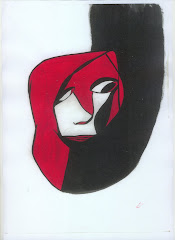News 05.18.2007
Fears for Democracy in India Martha C. NussbaumThe Chronicle of Higher Education May 18, 2007
"On February 27, 2002, the Sabarmati express train arrived in the station of Godhra, in the state of Gujarat, bearing a large group of Hindu pilgrims who were returning from a trip to the purported birthplace of the god Rama at Ayodhya (where, some years earlier, angry Hindu mobs had destroyed the Babri mosque, which they claimed was on top of the remains of Rama's birthplace). The pilgrimage, like many others in recent times, aimed at forcibly constructing a temple over the disputed site, and the mood of the returning passengers, frustrated in their aims by the government and the courts, was angrily emotional. When the train stopped at the station, the Hindu passengers got into arguments with Muslim passengers and vendors. At least one Muslim vendor was beaten up when he refused to say Jai Sri Ram ("Hail Rama"). As the train left the station, stones were thrown at it, apparently by Muslims.
Fifteen minutes later, one car of the train erupted in flames. Fifty-eight men, women, and children died in the fire. Most of the dead were Hindus. Because the area adjacent to the tracks was made up of Muslim dwellings, and because a Muslim mob had gathered in the region to protest the treatment of Muslims on the train platform, blame was immediately put on Muslims. Many people were arrested, and some of those are still in detention without charge -- despite the fact that two independent inquiries have established through careful sifting of the forensic evidence that the fire was most probably a tragic accident, caused by combustion from cookstoves carried on by the passengers and stored under the seats of the train.
In the days that followed the incident, wave upon wave of violence swept through the state. The attackers were Hindus, many of them highly politicized, shouting slogans of the Hindu right, along with "Kill! Destroy!" and "Slaughter!" There is copious evidence that the violent retaliation was planned before the precipitating event by Hindu extremist organizations that had been waiting for an occasion. No one was spared: Young children were thrown into fires along with their families, fetuses ripped from the bellies of pregnant women. Particularly striking was the number of women who were raped, mutilated, in some cases tortured with large metal objects, and then set on fire. Over the course of several weeks, about 2,000 Muslims were killed.
Most alarming was the total breakdown in the rule of law -- not only at the local level but also at that of the state and national governments. Police were ordered not to stop the violence. Some egged it on. Gujarat's chief minister, Narendra Modi, rationalized and even encouraged the murders. He was later re-elected on a platform that focused on religious hatred. Meanwhile the national government showed a culpable indifference. Prime Minister Atal Behari Vajpayee suggested that religious riots were inevitable wherever Muslims lived alongside Hindus, and that troublemaking Muslims were to blame.
While Americans have focused on President Bush's "war on terror," Iraq, and the Middle East, democracy has been under siege in another part of the world. India -- the most populous of all democracies, and a country whose Constitution protects human rights even more comprehensively than our own -- has been in crisis. Until the spring of 2004, its parliamentary government was increasingly controlled by right-wing Hindu extremists who condoned and in some cases actively supported violence against minority groups, especially Muslims.
What has been happening in India is a serious threat to the future of democracy in the world. The fact that it has yet to make it onto the radar screen of most Americans is evidence of the way in which terrorism and the war on Iraq have distracted us from events and issues of fundamental significance. If we really want to understand the impact of religious nationalism on democratic values, India currently provides a deeply troubling example, and one without which any understanding of the more general phenomenon is dangerously incomplete. It also provides an example of how democracy can survive the assault of religious extremism.
In May 2004, the voters of India went to the polls in large numbers. Contrary to all predictions, they gave the Hindu right a resounding defeat. Many right-wing political groups and the social organizations allied with them remain extremely powerful, however. The rule of law and democracy has shown impressive strength and resilience, but the future is unclear.
The case of Gujarat is a lens through which to conduct a critical examination of the influential thesis of the "clash of civilizations," made famous by the political scientist Samuel P. Huntington. His picture of the world as riven between democratic Western values and an aggressive Muslim monolith does nothing to help us understand today's India, where, I shall argue, the violent values of the Hindu right are imports from European fascism of the 1930s, and where the third-largest Muslim population in the world lives as peaceful democratic citizens, despite severe poverty and other inequalities.
The real "clash of civilizations" is not between "Islam" and "the West," but instead within virtually all modern nations -- between people who are prepared to live on terms of equal respect with others who are different, and those who seek the protection of homogeneity and the domination of a single "pure" religious and ethnic tradition. At a deeper level, as Gandhi claimed, it is a clash within the individual self, between the urge to dominate and defile the other and a willingness to live respectfully on terms of compassion and equality, with all the vulnerability that such a life entails. (...)"
(ver final do texto:
http://www.law.uchicago.edu/news/nussbaum-democracy-india/index.html)



